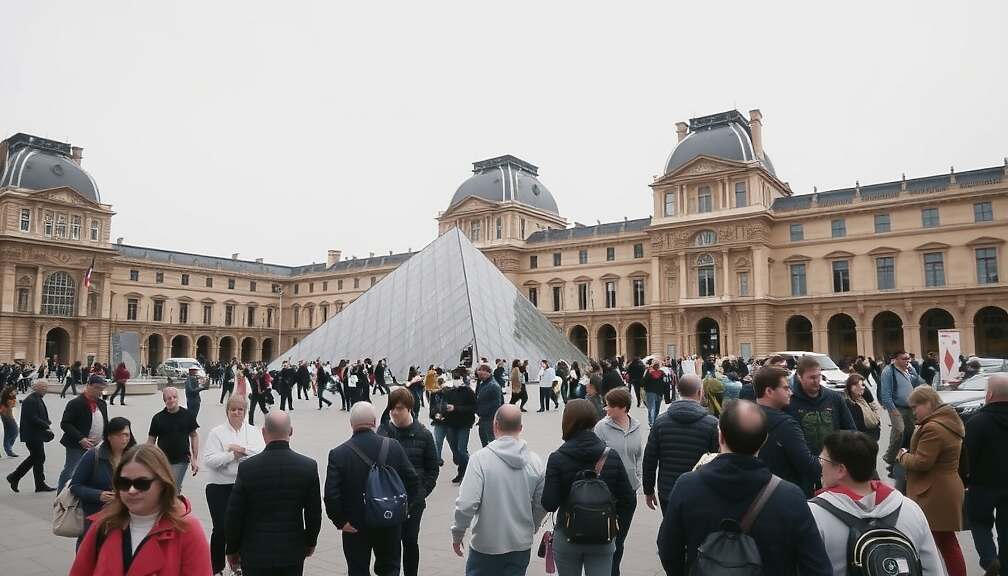The Louvre Museum in Paris resumed operations Wednesday following a daring jewel heist that occurred over the weekend, sparking renewed scrutiny of security protocols within French cultural institutions. The theft, estimated at €88 million, unfolded in just seven minutes, highlighting a vulnerability that has prompted a political firestorm.
The incident, occurring on Sunday, involved a group of unknown individuals who reportedly gained access to the museum using a ladder and subsequently fled on scooters. Authorities believe the operation was carried out by a sophisticated, organized crime syndicate, suggesting a level of planning and insider knowledge that points to systemic failures. Four individuals are currently suspected to be involved.
The timing of the robbery is particularly sensitive. It follows a recent string of similar incidents targeting French museums, raising concerns about a broader pattern of criminal activity specifically targeting cultural heritage. Opposition politicians are already seizing on the opportunity to criticize the government’s allocation of resources for museum security, arguing that recent budget cuts have directly contributed to the vulnerability.
“This is a blatant failure on the part of the state” declared MP Isabelle Dupont of the right-wing Les Républicains party. “The safety of our national treasures cannot be sacrificed for perceived austerity measures.
While police are currently analyzing fingerprints recovered from the crime scene, the immediate fallout centers on the perceived inadequacy of existing security measures, including surveillance technology and perimeter defenses. The Louvre, a symbol of French national pride and a major tourist destination, is now facing an uncomfortable spotlight on its weaknesses, potentially demanding significant investment and a fundamental reassessment of its protection strategy. The case underscores a growing concern: cultural institutions, historically seen as safe havens, are increasingly becoming targets for organized criminal enterprises.












